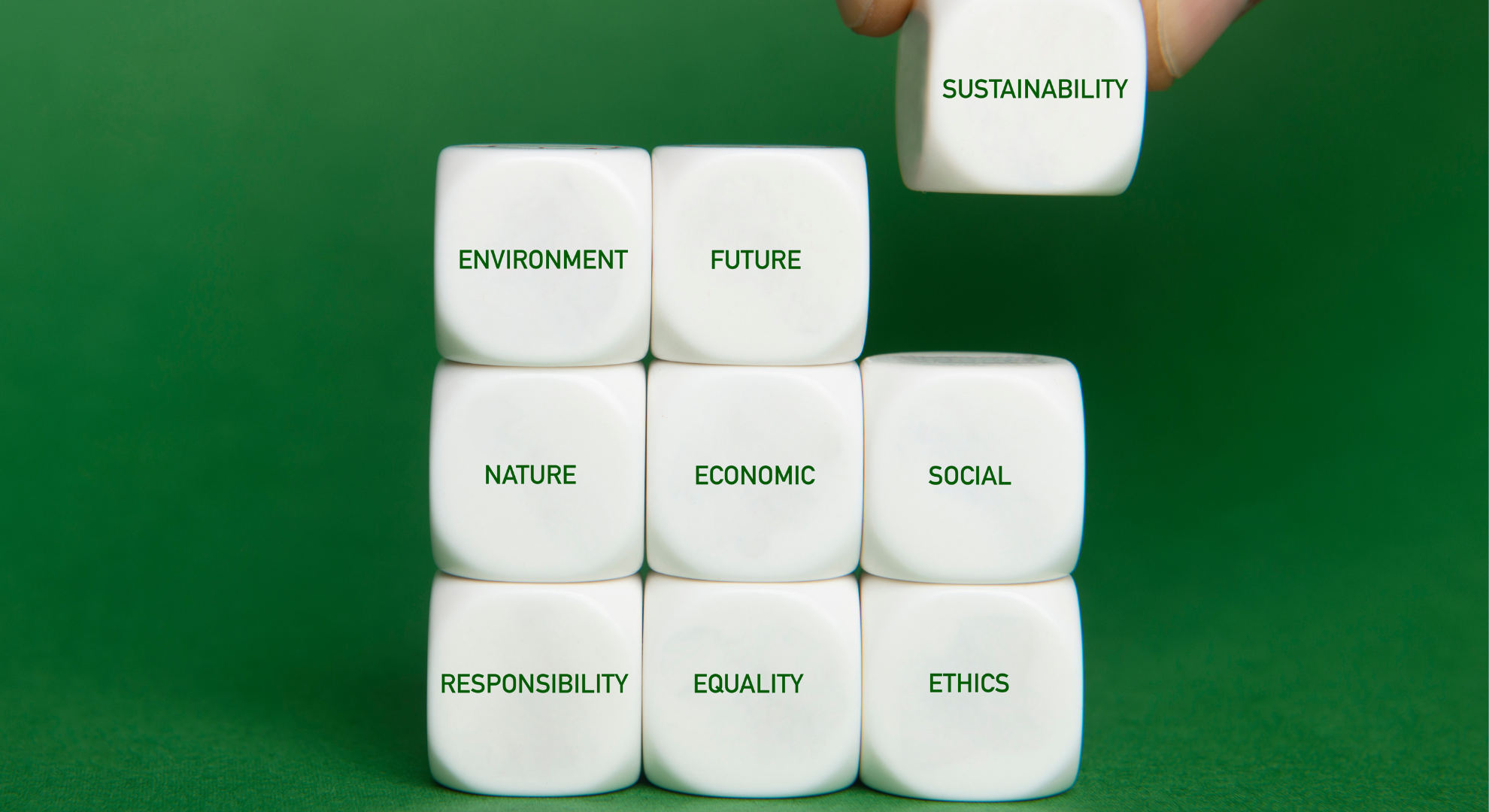Definition
The term “greenwashing” has been around since the 1980s.
Today, “impact washing” has been added to the lexicon of those seeking to hold companies and in particular financial institutions for their green claims.
Impact washing can be defined as any marketing claim about a product/good/services/funds triggering a change in the real economy that cannot be supported by evidence.
“Many financial institutions pretend that a change in the composition of their portfolio (such as reducing the exposure to the oil sector) automatically delivers environmental impacts,” explains Stanislas Dupré, Founder of the think tank 2° Investing Initiative and Convenor of the ISO working group that developed ISO 14097 (ISO 14097 is the standard “Greenhouse gas management and related activities – Framework including principles and requirements for assessing and reporting investments and financing activities related to climate change”).
“Today, impact washing is the norm rather than the exception. When my think tank reviewed the practices of asset managers in Europe in 2020, we found that many of them were making environmental claims and that almost all of these claims were misleading and non-compliant.”
How to stop impact-washing
To fight “Impact-washing” and to understand more deeply the impact of their investments on the populations served, investors can:
- not only require their investees to report on a set of common impact indicators but also run periodic in-depth impact studies, field visits, and partner on external evaluations and assessments
- evaluates its contribution to each of its investments based on an assessment of what would have happened in the absence of its investment
- set realistic, evidence-based targets, then monitor and evaluate actual achievements, using data and evidence to measure
A few tools have been created for governments, policymakers, and regulators to tackle the issue of impact washing:
- The standard ISO/TS 17033, Ethical claims and supporting information — Principles and requirements, which sets out internationally agreed ways to make a credible ethical claim
- The standard ISO 14097 - Greenhouse gas management and related activities — Framework including principles and requirements for assessing and reporting investments and financing activities related to climate change, which sets a benchmark for reporting financial institutions’ climate actions.
- The standard ISO 14021:2016 - Environmental labels and declarations — Self-declared environmental claims, which specifies requirements for self-declared environmental claims, including statements, symbols and graphics, regarding products. It further describes selected terms commonly used in environmental claims and gives qualifications for their use in order to avoid green washing.
In conclusion…
Demonstrating impact has not always been high on the agenda. However today, it is not enough anymore for all organizations, from governments to for-profit and nonprofit organizations, to simply say they are acting for the planet. They need to actively and verifiably demonstrate how they are doing it and give pieces of evidence.
Measuring their impact is crucial to prove environmental and social commitment to citizens, investors, stakeholders, employees, customers.
It will become the new standard so companies have to get prepared for the use of impact measurement frameworks and impact reporting.
In order to meet these demands, consolidation of methodologies, consistency in measurements and valuations and the increase in collaborations at a sector level to ensure comparability and transparency are expected in the coming years.
- ISO/TS 17033:2019 - Ethical claims and supporting information — Principles and requirements
- ISO 14097:2021 - Greenhouse gas management and related activities — Framework including principles and requirements for assessing and reporting investments and financing activities related to climate change
- ISO 14021:2016 - Environmental labels and declarations
Related articles
Global Reporting Initiative: What It Is and How to Do It
GRI stands for Global Reporting Initiative, and is an international independent standards organization that promotes sustainability reporting through the development of global standards for corporate responsibility, including environmental, social and governance (ESG) reporting...
Impact – What is Impact
The Corporate Sustainability Reporting Directive (CSRD) requires large businesses and SMEs to produce annual reports on their environmental and social impacts.
CSRD – What is CSRD
The Corporate Sustainability Reporting Directive (CSRD) requires large businesses and SMEs to produce annual reports on their environmental and social impacts.
Corporate Sustainability Reporting Directive: All you need to know
The Corporate Sustainability Reporting Directive is an EU regulation that will have a huge impact on how organisations report their environmental, social and governance (ESG) performance...
Sustainability – What is Sustainability
The GRI is an international independent standards organization and currently issues one of the most well-known standards for ESG reporting (GRI Standards).
Discover the latest Sustainability Recent Developments to improve your companies
Sustainability is a concept that evolves due to pressing sustainability challenges, worldwide issues, and its own concept limits. New concepts have emerged to think further and respond better to all the world’s current challenges...
GRI – What is the Global Reporting Initiative
The GRI is an international independent standards organization and currently issues one of the most well-known standards for ESG reporting (GRI Standards).
What is Materiality and Why it matters in business
Materiality is crucial for sustainability reporting because it allows companies to focus on the most important aspects of their sustainability efforts. A company can choose to report on all aspects of its sustainability program, but this would be extremely time-consuming and would probably not be very useful for investors and other stakeholders...
Materiality – What is Materiality
ESG is an acronym for Environmental, Social, and (Corporate) Governance. It refers to the non-financial factors of a corporation’s impact.
EcoVadis – What is EcoVadis rating
Created in 2007, EcoVadis provides a collaborative web-based rating platform for assessing the sustainability performance of organizations worldwide.
ISO 26000 – What is ISO 26000
ESG is an acronym for Environmental, Social, and (Corporate) Governance. It refers to the non-financial factors of a corporation’s impact.
B Corp – What is B Corporation certification
ESG is an acronym for Environmental, Social, and (Corporate) Governance. It refers to the non-financial factors of a corporation’s impact.
The concept of impact on social and environmental issues and its implication for companies
Impact measurement is a powerful tool for companies to gauge their impact on social and environmental issues. In this article, we will discuss the concept of impact, its implications for organizations, and how it can be measured...
The most important and recent developments of ESG (Environmental, Social and Governance)
Being a B Corporation is not just about making profits and creating wealth for a company, it is a way of creating a more sustainable future for society! Discover our article about B corps and its benefits here...
The process for an enterprise to get the B corp certification
Becoming a B Corporation is an ambitious undertaking. This article will guide you through the steps required to become a B Corporation…
CSR – What is Corporate Social Responsibility
CSR is centered on the idea that businesses have a responsibility to benefit the society that they exist within—a broader view than the one that says businesses’ only responsibility is to produce economic profit.
What is a B Corporation: what this means and its benefits for companies
Being a B Corporation is not just about making profits and creating wealth for a company, it is a way of creating a more sustainable future for society! Discover our article about B corps and its benefits here...
The guide to EcoVadis certification: frequently asked questions
This guide will take you through the steps of the EcoVadis Certification process, and explain what is involved in becoming a certified business...
The implications of ISO 26000 for companies
ISO 26000 is a standard providing direction for the application of social responsibility to the activities of an organization. But what does this mean? And how can organizations use it to create better and more sustainable business practices? Let's talk about it…
What is the meaning of CSR (Corporate social responsibility) and how to adopt it?
A Corporate Social Responsibility strategy refers to an organization's active consideration of the effects its activities have on the environment, employees, customers, and suppliers. Let's look at how your company could adopt such a program...
ESG – What is Environmental, Social and Governance
ESG is an acronym for Environmental, Social, and (Corporate) Governance. It refers to the non-financial factors of a corporation’s impact.
4 reasons companies should adopt CSR, Corporate social responsibility
CSR is all about managing a company’s externalities while creating sustainable value for stakeholders and continuous innovation for the business. Let's break that down and explore why...
Carbon disclosure project reporting: what is it and how does it work?
Read our article about The Carbon Disclosure Project (CDP), an extra-financial questionnaire that collects data on companies’ environmental practices and performance...
What are the differences between Corporate Social Responsibility (CSR) and Environmental Social Governance (ESG)?
These terms are both used to describe an approach for businesses to integrate social and environmental factors into their governance policies, strategies, processes, and programs. Yet, they're not the same. Let's explore their key differences...
Why is ESG (Environmental, Social and Governance) important for a business
ESG (environmental, social and governance) can help businesses make sound decisions, and investors achieve better long-term returns. Let's discover how...














